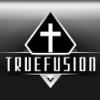-
Content Count
3,324 -
Joined
-
Last visited
About Me
Some people wonder if absolute truth is even possible. The short answer is, yes, it is. For it is absolutely true that truth exists. Otherwise, make sense of this statement: ''Truth does not exist.''
Freedom from Religion � the More Logical Choice?
[Currently under construction. Brief overview: History shows attempts committed by many people to form a free-from-religion society�Marxism, Communism, etc, to name a couple�only to ultimately end up in the restriction of rights, fascism, chaos, and the downfall of the nations in support of freedom from religion. Those coined as ''new-age atheists'' and atheists in general have and are promoting freedom from religion, whom of which are mere imitators of these ways of thought in today's society. As history evidently shows, this way of thought cannot be beneficial in any way, shape or form to even those that support these philosophies. Freedom from religion itself implies intolerance to any form of religion�and, ironically, even to freedom from religion itself.]
Cosmological Argument � Concept #1: ''Ultimate''
- Nothing has ever caused its own existence, therefore it must either have always existed or have been caused into existence (i.e. created).
- Matter can be simplified to condensed energy.
- In order for something to have always existed, it must by its nature be infinite.
- Anything infinite cannot change, it just is. That is, you can't take away from infinity and expect it to stop being infinite.
- Energy is a limited (i.e. finite) resource, therefore it is not by nature infinite, so it could not have always existed.
- Following from number one, if it could not have always existed, then it must have been caused into existence.
-
To cause requires a will, and a will requires a conscious.
- This conscious is, by necessity, infinite.
- This conscious we call God.
Cosmological Argument � Concept #2
It is said the Big Bang is where space and time itself came into existence, so in turn it is therefore said that asking what came before the beginning is illogical.[1] But how can existence as we know it enter itself if it wasn't there previously before the beginning? Therefore, since existence itself existed before the beginning, it is not illogical to ask what was there before the beginning, and existence as we know it shows to be something else. So what can we call this form of existence? It has to be something that isn't bound to space and time. It can't be energy, for it is bound to space and time (showing that energy itself had a beginning�which contradicts ''energy can neither be created nor destroyed''). Since existence itself must be something that is conceived or conceivable, what is there to conceive it except itself? Therefore this form of existence (i.e. prime existence) must have a conscious. To this we call God.
Guide for Fake Religions
There are a lot of religions out there. It does not follow that for that reason they are all therefore false, but that doesn't mean that there aren't false ones out there. So how can we detect if the ones that exist are false? There are plenty of ways to prove many false, and it usually involves omnipotence. I do not mean to imply that a religion with an omnipotent god cannot be true. What is omnipotence? Omnipotence implies a great deal of power and strength and it means that there is nothing greater than the bearer of omnipotence�otherwise it'd be false omnipotence. Here are a few guidelines to help you determine if a religion is false or not:
- Does it have multiple gods that try to take each others' places? It is only safe to first assume that these gods are all omnipotent. So what happens if they go at it with each other? That's like an unstoppable rolling ball running into an indestructible wall�you can't mentally picture that without declaring one of the objects as weaker or falsely defined, or without discarding the thought before they collide. But what does this also show? It shows that these are foolish gods; knowing that they're omnipotent, why even bother taking each others' places? Foolish gods can't cause a universe like this into existence. So now it follows that it is not safe to assume that these are omnipotent. But if they're not omnipotent, then it is safe to assume that these are lower, spiritual beings�demons and similar�placing themselves in high positions. Weak beings such as these can't create anything out of nothing�they are mere creation themselves.
- Does it have multiple gods or god that can die? This includes deities who were born the same way humans are without these deities previously existing. If they were given birth, then they can die; if they didn't previously exist, then they did not always exist and can die and are subject to everything humans are. Such beings cannot be omnipotent, since they are restricted by reality.
- (More to be added as i think of them.)
You'll notice Greek mythology and Hinduism can't help but come to mind with these. As some food for thought, what do these mean? Is religion therefore as tautologic as people claim it is? But what are we left with so far? If there is a god, it has to be omnipotent and intelligent and immortal. If there are multiple omnipotent and intelligent gods, they have to be of similar mind, not seeking each others' life. [To be cont'd...]
The Deist's Dilemma
What's more logical: to believe in a personal god or impersonal god? An impersonal god there is no information on; a personal god has information about itself. It is more logical to yield towards that which we have information on.
The concept of deism is an interesting one, in that it claims that the god that exists is an impersonal one. Yet you have to ask yourself, how did the deist conclude that there is a god if an impersonal god does not give out any information for one to even conclude such a thing? For that reason, there can either be only personal gods or no gods at all. The deist, therefore, is left with a dilemma: accept that there is but only personal gods or find a way to somehow validly and objectively deny the things that caused them to believe in a god in the first place. They should of course find the former to be the more logical, easy route, due to failure to prove that there is no god.



